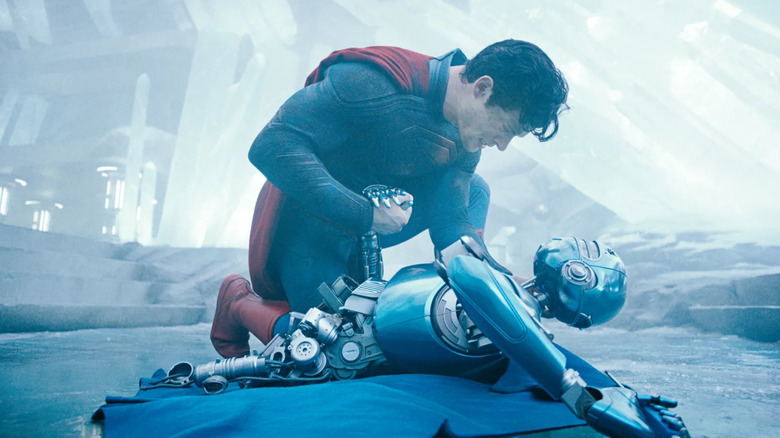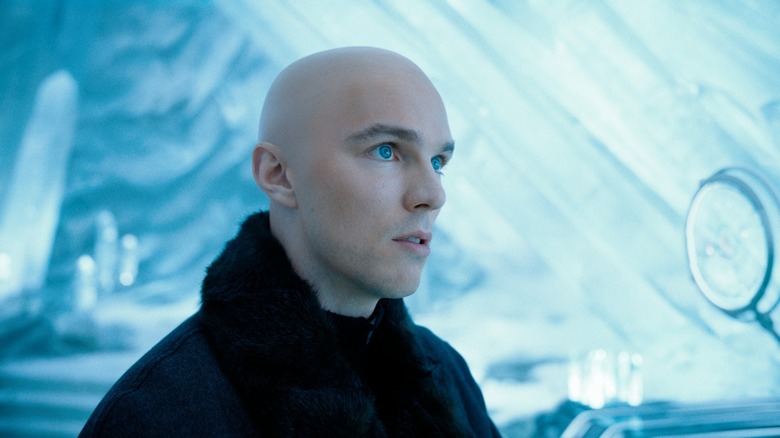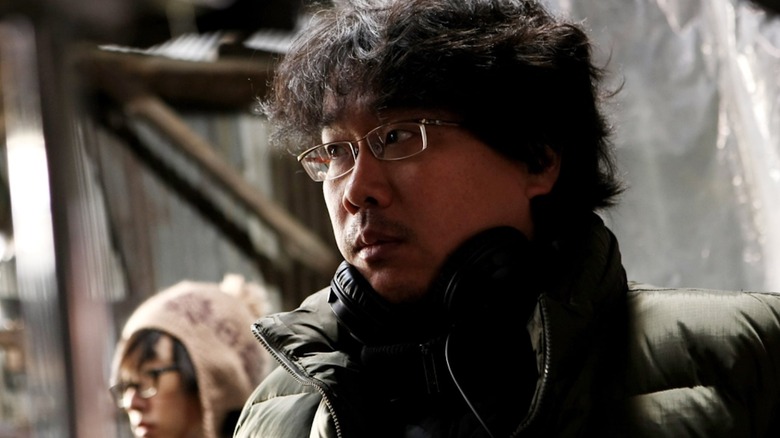James Gunn's Superman Reminds Us Of The Tonally Audacious Work Of An Oscar-Winning Director
At the outset of Robert Altman's "The Player," an arsenic-laced satire of the movie business as it existed in the early 1990s (and, spiritually at least, still exists today), Tim Robbins' suavely vapid studio executive Griffin Mill takes a series of pitch meetings from prominent screenwriters. None of these scribes brings their A-game (save for Alan Rudolph's crossbreeding of "Ghost" and "The Manchurian Candidate"), but the most cynical of the batch comes from comedy legend Buck Henry, who hawks "The Graduate Part II" with nary a whit of shame.
Henry is all business here. He first notes that the three principals, Dustin Hoffman, Katharine Ross, and Anne Bancroft, are still alive (Bancroft has since passed), then reveals that the characters are living together in a "big, spooky house up in Northern California somewhere." The kicker: Bancroft's Mrs. Robinson has had a stroke. But while she can no longer speak, she can hear everything going on in the house from her upstairs bedroom. A nervous Mill asks the only question that matters to a soulless suit, "Will it be funny?"
"It'll be funny," replies Henry. "Dark, weird, and funny. And with a stroke." The writer senses in the moment that a diminished Mrs. Robinson might be a no-go. "Maybe it's not a stroke. I don't know what it is. It's a malady of some sort."
I think about "The Player" all the time because it's an unsettlingly realistic Hollywood takedown, but Henry's pitch stands out because it sounds just awful. Almost everything in "The Player" is believable, but a genius like Henry whoring himself out with a tonally jumbled sequel to the film that launched his screenwriting career feels too broad. By the 1990s, studios were slaves to stars and formula. They wanted easy-to-market, if not pre-sold, movies that delivered precisely what audiences expected.
This is why, 33 years later, I'm blown away by how James Gunn got away with the dark, weird, and funny (if stroke-free) "Superman." And while Gunn has always been an adept tone blender, what he's accomplished with his DCU debut calls to mind the invigorating risk-taking of a recent four-time Oscar winner.
A Superman that takes wild emotional swings
James Gunn has always loved hurling narrative curveballs (which is why his "Guardians of the Galaxy" movies are the most distinctive films in the MCU franchise), but "Superman" offers him a new kind of freedom by kicking off a brand new franchise in media res. Superman (David Corenswet) is an established character in the DCU, which opens up a surfeit of narrative possibilities. Kal-El's Kryptonian origin story is sprinkled throughout the film — and, in one shocking twist, revealed to be the antithesis of the noble mission we've long associated with the character. Kal-El wasn't sent to Earth to protect its populace; his whole purpose is to conquer the planet and impregnate as many women as possible to ensure the revival of the Kryptonian race. Amazingly, this lands as a stinging betrayal and, at least for me, a hilarious subversion of the character's mythos.
Even more stunning is the scene wherein Lex Luthor (Nicholas Hoult) attempts to extract crucial information from an imprisoned (and weakened by kryptonite) Superman by playing Russian roulette with kindly falafel cart operator Malik Ali (Dinesh Thyagarajan). Malik pleads with Superman to reveal nothing, but just when the superhero is about to crack, Luthor blows Malik's head off. Given that Superman's weakened state has been made possible by Metamorpho (Anthony Carrigan), who's acting to save the life of his child, there's nothing subversively amusing here. At least, not for long. Soon, Metamorpho's emotional insecurity pops back up, and we're laughing again.
The whole of Gunn's "Superman" is like this, and it rarely sets a foot wrong tonally. Yes, the MCU movies balance comedy and tragedy, but in most of the movies, you can feel when a dialogue or entire scene has been punched up by a comedy writer. There's a seamlessness to "Superman," and these wild emotional swings call to mind the work of a maestro who won Best Picture, Best Director, Best Original Screenplay, and Best Foreign Film in 2019. Which eliminates Jim Wynorski.
The Bong Joon Ho of James Gunn Superman
It has been a long time since I saw Bong Joon Ho's "Barking Dogs Don't Bite," but I have watched Director Bong's "Memories of Murder" frequently over the years, and I can't think of many films that so effortlessly and, most importantly, sincerely segue from suspense to sorrow to physical comedy to outright terror over their run time. It's an alternately funny and frightening movie that closes out with one of the most unforgettable final shots in film history. It's effective for many reasons, but its refusal to obey serial killer conventions makes it sing.
When it came to upending rigid formulas, Director Bong set himself a crazily high bar with his follow-up film, "The Host." It's a giant monster movie with an ecological message, but the latter element, so often overstated to ensure the cheap seats understand the dangers of meddling in things humankind must leave alone, took a back seat to one of the most strangely compelling family dramas ever attempted in a film featuring a Godzilla-sized beast.
I was on guard for Director Bong's subversive tendencies, but he floored me with the scene where the Park family comes to pay their respects to young Park Hyun-seo. At first, the surviving Parks are overcome with grief, and Director Bong has the actors play it with all due sorrow. It's an incredibly moving sequence, but then it just keeps going. Eventually, the Parks collapse to the floor and writhe in agony, at which point we're howling at the very real, but extraordinarily funny display of extreme anguish. Park Hyun-seo is alive, it turns out, and the rest of the film finds the Parks redeeming themselves in inventive ways that bring the audience to its feet.
Throughout "Superman," I couldn't shake the feeling that I was watching something akin to a Bong Joon Ho superhero movie, and this, along with the fact that the movie is absolutely terrific in its own right, delighted me to no end. I've lost count of how many times Marvel Studios has talked up their latest latex epic as a comic book "Three Days of the Condor" or whatever (Peyton Reed did deliver an enjoyable "What's Up Doc?" riff with "Ant-Man and the Wasp"), but the DNA (much less the craft) just ain't there. While Gunn cited Takashi Yamazaki's "Godzilla Minus One" as an influence, he's yet to invoke Director Bong. Perhaps that's because his studio, Warner Bros., would like to forget Director Bong's "Mickey 17," which bombed last March. Or maybe Gunn didn't think about Director Bong at all!
I just know that I did both times I saw it, and in times such as these, I'll double up on my elation even if it's purely imaginary.


